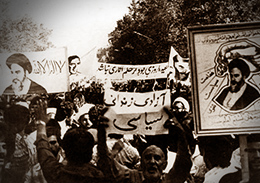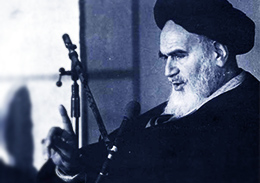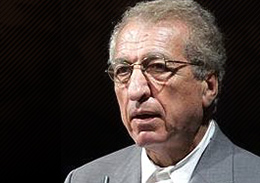The 15th of khordad uprising
making the grounds for the victory of the Islamic Revolution

Between the disaster of Fayzieh school and Moharam month (Farvardin 2nd to Khordad 4th of 22) (1963 A.D.) the struggle of Imam against the Shah regime was mostly the kind of issuing several publications. Once Moharam month appeared the situation was one of extensive face up. The Moharam times were ripe for disclosing the regime crimes and Shah's anti-Islamic plans. Savak which knew of the special status of this month before its start called on many of speech-marks and made them not speak against the Shah in gatherings:
1- Not to speak against the Shah
2- Not to say anything against Israel
3- Not to say to the people that Islam is in danger
Imam Khomeini in a meeting with Ghom Ulmas suggested that in Ashura day each of them speak for the people and those mourning the killing of Husain and disclose the oppressing and crimes of the regime. Imam himself also dispute the regimes threat at 4 o'clock of Ashura of 22 which was concurrent with Khordad 13 of that year went to Faizieh School in order to make a speech.
Imam Khomeini in a meeting with Ghom Ulmas suggested that in Ashura day each of them speak for the people and those mourning the killing of Husain and disclose the oppressing and crimes of the regime. Imam himself also dispute the regimes threat at 4 o'clock of Ashura of 22 which was concurrent with Khordad 13 of that year went to Faizieh School in order to make a speech.
After he talked about the discomforting disasters of Karbala he said that attack made by the Shah forced to Faizieh was similar to Karbala event and thought of that disaster as something that Israel diagnosed and stated that the Shah regime came in to existence by Israel. Also Imam referring to what Savak had asked of the speech-makers wanting them not to blame the Shah and Israel and refuse to say that Islamic in danger stated that: “all of our problems and disagreements are because of these three subjects… if we refuse to say that Islam is in danger then it is not indeed? If we refuse to say that the Shah is like this or that then it is not like this? If we refuse to say that Israel is dangerous for Islam and Muslims then it is not like that? And principles what kind of relationship exists between the Shah and Israel propelling the security organization to say that we should not speak about the Shah and Israel? Is the Shah according to the security organization from Israel?’(Sahifeh-ye Imam, vol. 1, p. 247)
The crushing words and revealing words of Imam downgraded the Shah more than before for the people. Two days before this speech in the morning of Khordad of 15th 1322 due to the Shah's order Imam was captured in his house and was immediately brought to Tehran. First he was first jailed in an individual cell and then was transported to a military base that was fully protected.
After the news of the capturing of Imam in the morning of Khordad of 15th 1322 was cast and it was thus knows that this was due to his historical speech against Israel and the Shah's regime from the first hours of Khordad of 15th extensive protests in Qom, Tehran, Varamin, Mashhad and Shiraz took place which was accompanied why slogans against the Shah and in support of Imam.
Military personals which were stationed in the downtown areas and sensitive areas of Qom and Tehran fired or protestors. People defended themselves using stones and pieces of wood. Protests continued in that day and two days after and thousands of people were killed and injured. The most disastrous event was the massacre of shroud-wearing peasants of Varameen who were going to Tehran in support of Imam. Military personnel on Bagherabad bridge faced then and using heavy arms massacred them.





























